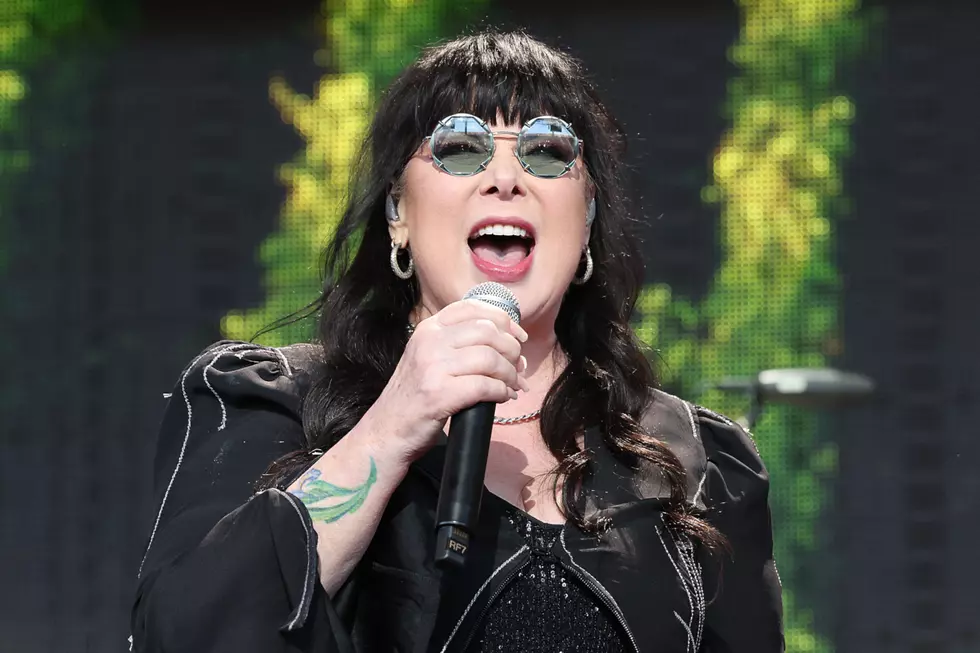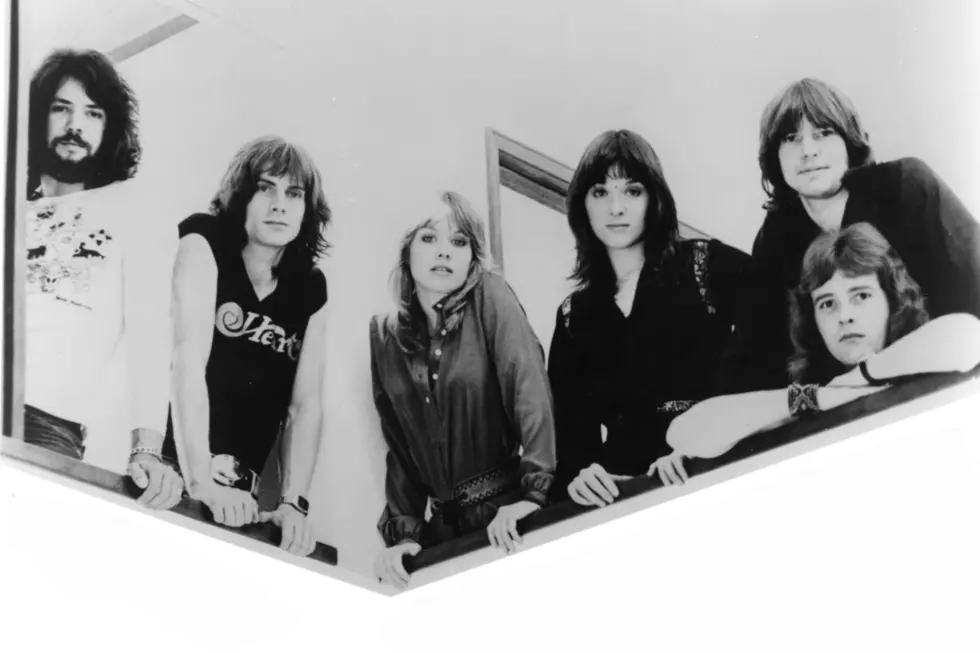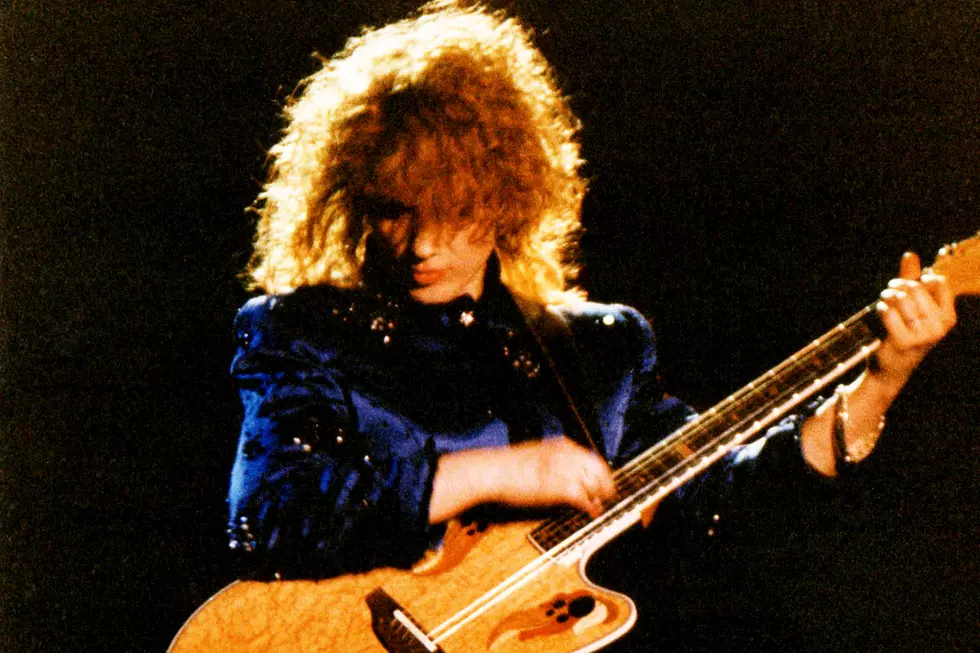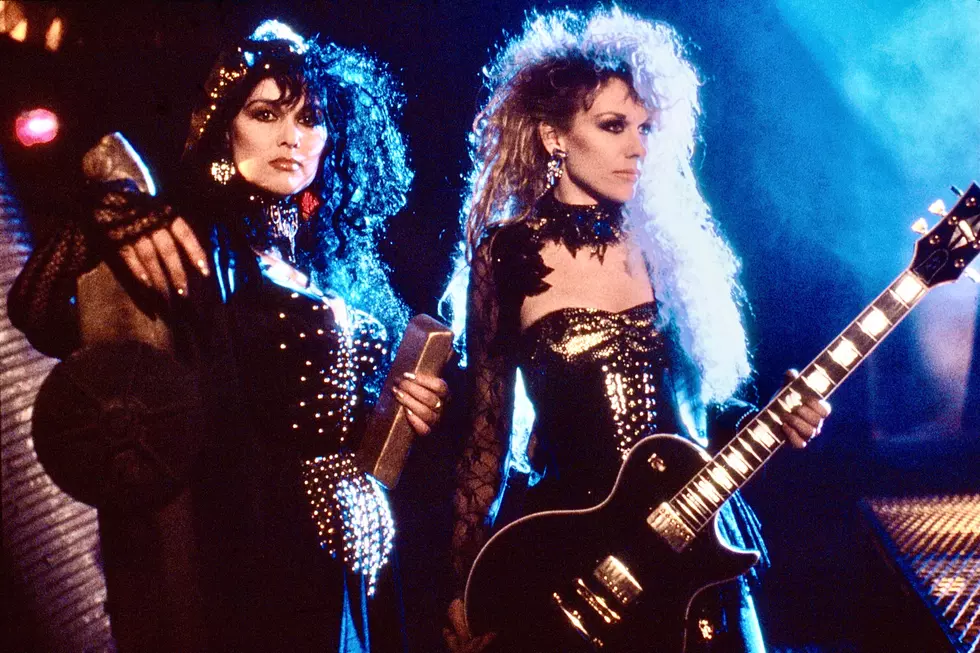
Heart In Concert: One Night, 40 Years of Memories
Acclaimed rock photographer Mark Bowman has spent over four decades chronicling priceless onstage and backstage moments from some of the genre's biggest legends, including Led Zeppelin, Eric Clapton, Tom Petty and the Who. Here, he shares his thoughts about how Heart have grown since Dreamboat Annie. You can check out much more of Mark's excellent work at MarkBowmanImages.com.
In “Maslow’s Hierarchy of Needs” pyramid graph, the concept of “self-actualization” is the highest state one can achieve in their life’s endeavors. “It refers to the person’s desire for self-fulfillment," Abraham Maslow described it as such in 1943, "namely, to the tendency to become ‘actualized’ in what he or she is potentially."
As the lights came down for Heart’s 2016 return to Houston, four decades of memories and a broad sense of perspective flooded my thought process. They came out to a thunderous roar and lit into the first song, “Wild Child," a thrashing opener from Brigade. The band was tight and Ann Wilson was working the entire stage with constant movement and intensity. She and Nancy truly seemed as if they were in the moment and they took the same approach they had for the past 40 years: to take no prisoners and to show that this was a serious, no-holds-barred rock band. There was an urgency to this performance and now, with the Rock and Roll Hall of Fame accolades, their book, box set and the new record Beautiful Broken, they have truly reached a level of self-actualization.
I first became aware of Heart in 1976 when I heard the strains of "Magic Man" being played down the hall in my dorm when I was in college in Colorado. My first time to see them? Oct. 31, 1976 at a big Halloween bash in Denver with them and Boston on their debut album tours opening up for headliners Black Sabbath, all for the princely sum of $6.50 a ticket. I have witnessed every U.S. tour of Heart since that date.
The halcyon years of 1976-9 were key to establishing the footprint for a lasting legacy. Those first four albums by the original lineup paved the way for platinum sales and headliner status around the world. This was achieved with a lineup that evolved from the early bar band days in Vancouver in the early '70s. Personal relationships within the band eroded the core of the once-tight partnership and Ann and Nancy decided to take matters into their own hands to achieve their ongoing artistic vision. The Wilson sisters also replaced the rhythm section with two accomplished veterans, Mark Andes and Denny Carmassi in the early '80’s.
Ann and Nancy had a very fortuitous shift in their careers in the mid-'80s that saw them take an open-minded approach to using outside songwriters in addition to their core songwriter group of Ann, Nancy and Sue Ennis. From a critical perspective, the addition of outside songwriters diffused the personal touch and expressiveness that they brought to the table relative to their songwriting talents. In my opinion, they didn't need outside writers, or a Mutt Lange/Shania Twain approach, because their own material and songwriting was still at a very high level. Tthat said, it would be impossible to deny the impact and chart success that this new mid-'80’s MTV-fueled era brought to the band.
Once the '80s ended, and they had released Brigade and Desire Walks On, the Wilson sisters decided to reassess their path and artistic vision. They basically took a step back from the pressures of the corporate “star-maker machinery behind the popular song” as Joni Mitchell sang in "Free Man in Paris." The record industry demands became so onerous and artistically limiting that they seriously considered ending the band/brand “Heart” and its attendant commercial expectations. At this fork in the road, they decided to focus on musical endeavors that made themselves happy. They partnered with Ennis and Frank Cox and created the Lovemongers in the early '90s.
This was an important time for Ann and Nancy because it was a momentous shift back to harnessing their songwriting and creative talents. The Lovemongers first came into public consciousness on the Singles movie soundtrack when they covered Led Zeppelin's "The Battle of Evermore." From that, the seeds of an album were in place that saw Ann and Nancy start to develop their own ideas again like the glorious early days of their career. Their funk-driven, soulful rendition of the Temptations' “Papa Was a Rollin’ Stone” on the first Lovemongers EP easily rivals the original and should be a staple of their live set to this day. The Lovemongers' original composition, “Sand,” is a magnificent farewell elegy to a friend and reminds us that we are all just “travelers passing through” this mortal existence. It remains one of the most moving songs they have ever written.
Simply put, Ann and Nancy Wilson are pioneers. They exploded upon a scene in the mid-'70s that captured the imagination of the world with a new and unique offering -- a rock band conceived, powered and driven by two very talented women. There was no blueprint for this type of band before they personally took hold and made it happen. Longtime manager Carol Peters has provided a deft touch as she has guided their careers in a way that places a premium on taste and artistic vision over commercialism. She and her team have seamlessly handled the business side of things while the Wilsons could focus on the ongoing creative effort.
They have progressed well beyond the disposable trends that seem to typify the music industry, fought the hard battles to maintain that autonomy and still remained true to themselves the entire time. Ann and Nancy Wilson’s insistence on the core values of creativity, vision and integrity have served them well over the past four decades while still making inspiring music and taking the ever-onward approach to their craft. One listen to “Heaven," “Two” or the title track from Beautiful Broken will prove that their skills remain in full gear, and that they are one of the few artists that still place a premium on creating new, exciting sonic treasures for us to add to the soundtrack of our lives.
Their lives' work will remain with us long after they are gone and they have made the world a better place by sharing their muse with the rest of us. Yet, with all the things we could say about Ann and Nancy, there is still one thing that stands out above all. Nancy put it best on their VH-1 Behind the Music special where she reminded people about the reason for their existence and she alluded that it certainly wasn't about the fame, money or sex appeal. She simply said, "It's about the ‘effin’ music!"
See Mark Bowman's Photos of Heart's 2016 Tour
More From Ultimate Classic Rock









